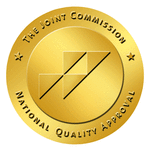What You Should Expect In Early RecoveryBecoming clean and sober is the first step in recovery. While at an inpatient rehab program, the addict will only begin to think clearly and deal with why they use drugs. At this point, it is like the addict is waking up from a coma and is only starting from where they left off before the drugs took over. Emotions will be raw and the addict may not be able to handle too much at first. However, you do not want this opportunity of vulnerability to close. Helping an addict open up and deal with the underlying causes of their addiction is what recovery is all about.
The Bare Minimum
An addict should be in active recovery every day. Whichever program they choose, they should be:
- In support group meetings
- In psychotherapy (individual or group counseling)
- And/or following a recovery protocol or relapse prevention plan
These actions need to take place every day for a minimum of one year. If an addict stops the actions needed to maintain sobriety, s/he can easily fall back into old patterns.
An Open Book
An addict who wants to be sober and live a clean life is very observable. If an addict is serious about recovery, their lives will be an open book. The will let you in and not keep secrets or disappear or refuse drug tests or make excuses for why they are acting different.
This is not to say that old patterns are easy to break… but if an addict is ready to move on with their life, they will want everyone to know they are clean and sober. They will not have a reason to hide from friends and family anymore. They may be shameful of their past behavior but honesty will be their number one priority. You will notice a sincerity you have not seen in them since maybe before they became addicted.
Increased Trust Over Time
Family members can expect to still have the old fears and rightfully so, but over time trust will be regained. It is completely normal fear to let an addict to go to the bathroom in your home with the door closed. These fears are real but you must trust your instincts because you will know the minute they are using again.
The Dry Drunk
What happens if the addict is clean and sober but their attitude remains the same? Some refer to this behavior in a recovering addict as a dry drunk. Just because a person can abstain from using drugs, their behavior may be the same as when they were drinking and drugging. A dry drunk is not committed to, nor participating in, a program of addiction recovery.
This could simply be an issue where the addict is angry and has no other way of coping. They might lack coping skills and that is why they used drugs in the first place. They may have underlying anger issues or problems they have yet to address, so they act out instead of use drugs. Most families are so relieved that the drug use is over, they will tolerate just about anything.
If this is the scenario you are experiencing with your sober loved one, then it might be a good idea to insist they seek therapy. You can still create boundaries, much like you did when they were using drugs. You have every right to not be a victim to this type of behavior. We know from experience that forcing an addict to get clean does not work and forcing a dry drunk to get help may not work either, so setting up boundaries and being clear about what you expect is a great way to not repeat the same old cycle you were in before.
The One-Time Relapse
An addict may also relapse. This is a common fear among family members and a very real one. If the addict is not coping in the real world well and finds life to be too overwhelming, their urge to use drugs will be too strong. However, a very high percentage of drug users relapse. It’s actually quite common.
If you find the recovering addict has relapsed, first know that you do not need to shut them out of your lives. You may offer them a way to go back into recovery. Life without drugs may be too much for them to handle. Most people go back to old patterns and what they know best when they feel lost, trapped, or hopeless. This is a sign that the addict may need more help or a different kind of help. Recovering from a relapse can mean that a person can just get up and return to recovery, but there are addicts to which this behavior is chronic.
The Chronic Relapser
Different from a one-time relapse is the chronic relapser. This person will flip-flop between sobriety and using at a moment’s notice. They will play on your sympathies. They will start to move away from sober living and recovery programs. It is just a matter of time before this person will most likely go back to their full blown addiction. You will have to stay strong and recognize that this person is not ready for recovery. The key is to not let the merry-go-round of addiction and co-addiction start again.
MAIN TIP: Deal In Facts Only
A family may be asking how they will be able to navigate their loved ones recovery, alleviate old fears, and gain trust back. Sometimes, the fear that an addict is clean and will use again is overwhelming. You feel like you are walking on eggshells and you do not want to do anything to possibly set that person off. The truth is, if an addict really wants to be clean, he or she will not make excuses but will be honest and work at their sobriety every single day.
So, to conclude, family members must deal in facts only. So many promises have been broken and there is no trust in the addict and so the family has two things they must understand when an addict comes home. Your gut feeling is your best guide, you know from the past what an active addict looks and sounds like. You know when something is not right or if you are being lied to.
The other key piece is getting the facts. Do not trust or believe an addict for their words, you can only trust the actions you see. If an addict is clean then there should be no excuse as to why they cannot take an impromptu drug test. Who needs drug testing? Anyone who used to take drugs! Do not believe what an addict tells you, even if they are sober, they must show you. There must be proof of what they are saying.
If they are going to an outpatient recovery program then you should be able to be in contact with that program director. If the facts are there, then trust will come in time. This is a rocky period for everyone and establishing a list of things you expect while being supportive may be the best way to get through it.


 RSS Feed
RSS Feed
